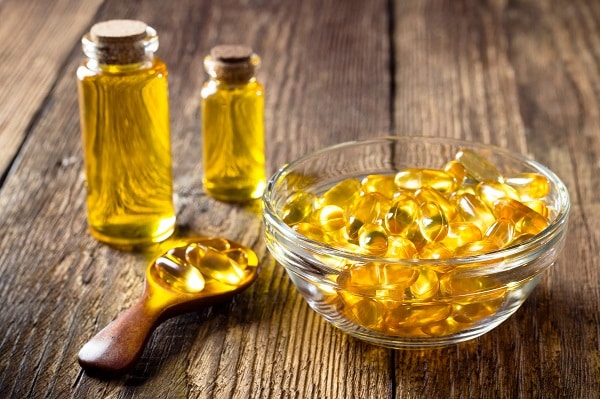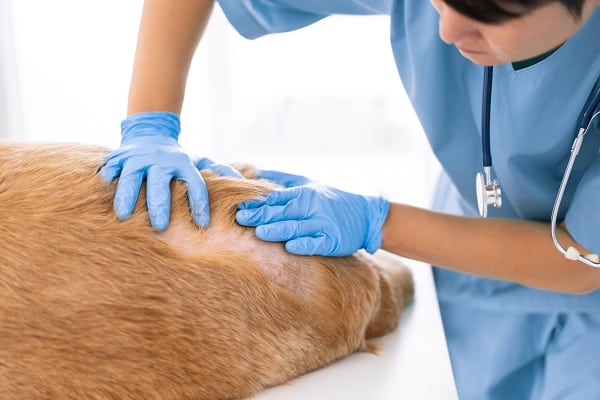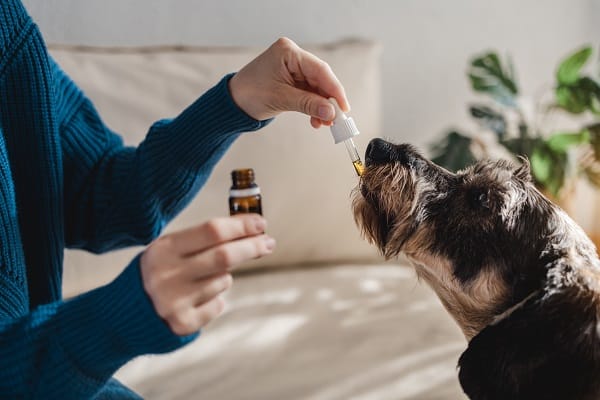Every dog owner cherishes the vitality and beauty of a glossy, healthy coat. Yet, numerous dogs suffer from skin and coat issues, evidenced by excessive shedding, allergies, or dull appearance. Enter fish oil, a supplement renowned for its wealth of Omega-3 fatty acids. With the backing of science and the nod of many veterinarians, fish oil is making waves in canine wellness circles. This post delves into the components and benefits of fish oil and its profound effects, from enhancing the aesthetic appeal of the dog’s coat to bolstering the skin’s health and resilience against allergies and irritations.
The Nutritional Composition Of Fish Oil

Omega-3 fatty acids, notably EPA (eicosapentaenoic acid) and DHA (docosahexaenoic acid), are the stars of fish oil’s nutritional profile. These fatty acids are acclaimed for their potent anti-inflammatory and cellular health-boosting properties. They are not naturally occurring in canine bodies, making dietary intake essential. Fish oil provides these vital nutrients in abundance, setting the stage for a series of health dividends that are manifested in the radiant glow and lushness of the dog’s coat and the resilience of their skin.
In addition to Omega-3s, fish oil is also rich in other beneficial compounds that synergistically enhance its effects. Vitamins A and D, for instance, play integral roles. Vitamin A is pivotal for skin health, aiding in the repair of skin tissues and providing an added layer of defense against infections. On the other hand, Vitamin D supports bone health and immunity, contributing indirectly to the skin and coat’s overall well-being.
Enhancing Coat Health

A dog’s coat is more than an aesthetic feature; it’s a reflection of their overall health. The incorporation of fish oil into a dog’s diet has shown noticeable improvements in coat texture and shine. The Omega-3 fatty acids nourish the coat, reducing excessive shedding and promoting a luscious, glossy appearance. Dog owners and veterinarians alike have noticed these transformations, making fish oil a go-to supplement for coat health.
The scientific community is not left behind in affirming the benefits of fish oil. Research studies have shown that dogs supplemented with fish oil exhibit a healthier, shinier coat compared to those without. It’s not just about the radiant glow; the coat becomes stronger, with individual hair follicles being more resilient. This enhanced strength and vitality reduce breakage and shedding, promoting a fuller, healthier coat that every dog owner desires.
Alleviating Skin Allergies And Irritations

Fish oil’s Omega-3 fatty acids are renowned for their anti-inflammatory properties, which play a pivotal role in alleviating skin allergies and irritations in dogs. The fatty acids, particularly EPA and DHA, mitigate inflammatory responses, offering relief from symptoms like itching, redness, and swelling. Dogs suffering from conditions such as atopic dermatitis, hot spots, and other skin allergies can experience significant relief with the correct dosage of fish oil.
Beyond immediate relief, consistent supplementation with fish oil can lead to long-term improvements in skin health. It aids in moderating the immune response to allergens, reducing the severity and frequency of allergic reactions. Pet owners who have introduced fish oil to their dogs’ diet often report less reliance on medications and fewer visits to the vet for skin issues, signifying an enhanced quality of life for their furry companions.
Strengthening The Skin Barrier

A robust skin barrier is essential for a dog’s overall well-being, acting as the first line of defense against environmental aggressors like pathogens and allergens. The benefits of fish oil aids in strengthening this barrier, enhancing the skin’s ability to retain moisture and nutrients. As a result, the skin becomes more resilient, reducing susceptibilities to infections and diseases. Omega-3 fatty acids play a central role in cellular health, promoting the regeneration and strengthening of skin cells.
The benefits of a fortified skin barrier extend to the coat. A healthy skin foundation supports the growth of strong, vibrant fur. The nourished skin ensures that hair follicles receive the essential nutrients for growth, leading to a lush, full coat. The combination of a strengthened skin barrier and a healthy coat not only enhances the dog’s aesthetic appeal but also contributes to their overall comfort and well-being.
The Right Dosage And Administration

Determining the appropriate dosage of fish oil is crucial to harness its benefits effectively. Factors like the dog’s size, breed, and specific health concerns play a significant role in establishing the right amount. Generally, smaller doses are suitable for maintenance and overall well-being, while higher dosages might be necessary to address specific skin and coat issues. Consulting a veterinarian is always recommended to tailor the dosage to the dog’s individual needs and health status.
Administration of fish oil can be done in various ways to ensure the dog receives its benefits. It is available in forms like liquid oil, capsules, or chewable tablets, each offering different concentrations of Omega-3 fatty acids. When introducing the benefits of fish oil, it’s vital to consider the dog’s preferences and any dietary restrictions to ensure consistent intake. Monitoring the dog’s response and adjusting the dosage or form as necessary can optimize the benefits for the skin and coat.
Precautions And Considerations

Fish oil supplementation, while beneficial, requires a cautious approach to avoid potential side effects. Overdosing can lead to issues such as diarrhea, indigestion, or nutrient imbalance. Therefore, adhering to the recommended dosage is crucial. It is also important to observe the dog’s reaction to the supplement, as individual responses can vary. Some dogs might experience minor side effects, while others assimilate the supplement seamlessly into their diet.
A veterinarian’s guidance is indispensable in safely navigating the benefits of fish oil supplementation. They can offer tailored advice considering the dog’s specific health status, size, and breed. Additionally, monitoring the dog for any adverse reactions and consulting the vet promptly ensures that the supplement serves its intended purpose of enhancing the skin and coat’s health without compromising overall well-being.
Choosing A Quality Fish Oil Supplement

The market is flooded with various fish oil supplements, making quality discernment essential. Attention should be paid to the source, purity, and freshness of the oil. Sustainable sourcing and rigorous testing for contaminants ensure the oil’s efficacy and safety. Transparency about the ingredients and manufacturing process from the brand is a good indicator of quality.
Label reading skills are crucial in evaluating the supplement’s quality. Look for indicators such as the concentration of Omega-3s, specifically EPA and DHA, and any certifications of purity. Consider also the form of the supplement—whether liquid, capsule, or chewable—and its storage requirements to maintain potency and effectiveness. A little due diligence ensures that the chosen product delivers the desired benefits to the dog’s skin and coat without any unwanted side effects.
The Bottom Line
Incorporating the benefits of fish oil into a dog’s diet can be transformative for their skin and coat’s health. The rich presence of Omega-3 fatty acids, especially EPA and DHA, not only imparts a radiant glow and lushness to the coat but also fortifies the skin’s defense mechanisms. Caution in dosage administration, quality selection, and close monitoring of the dog’s response maximizes benefits and minimizes risks. Always seeking a veterinarian’s counsel ensures the supplement is tailored to the dog’s specific needs, heralding a journey to enhanced vitality, comfort, and aesthetic appeal for man’s best friend.